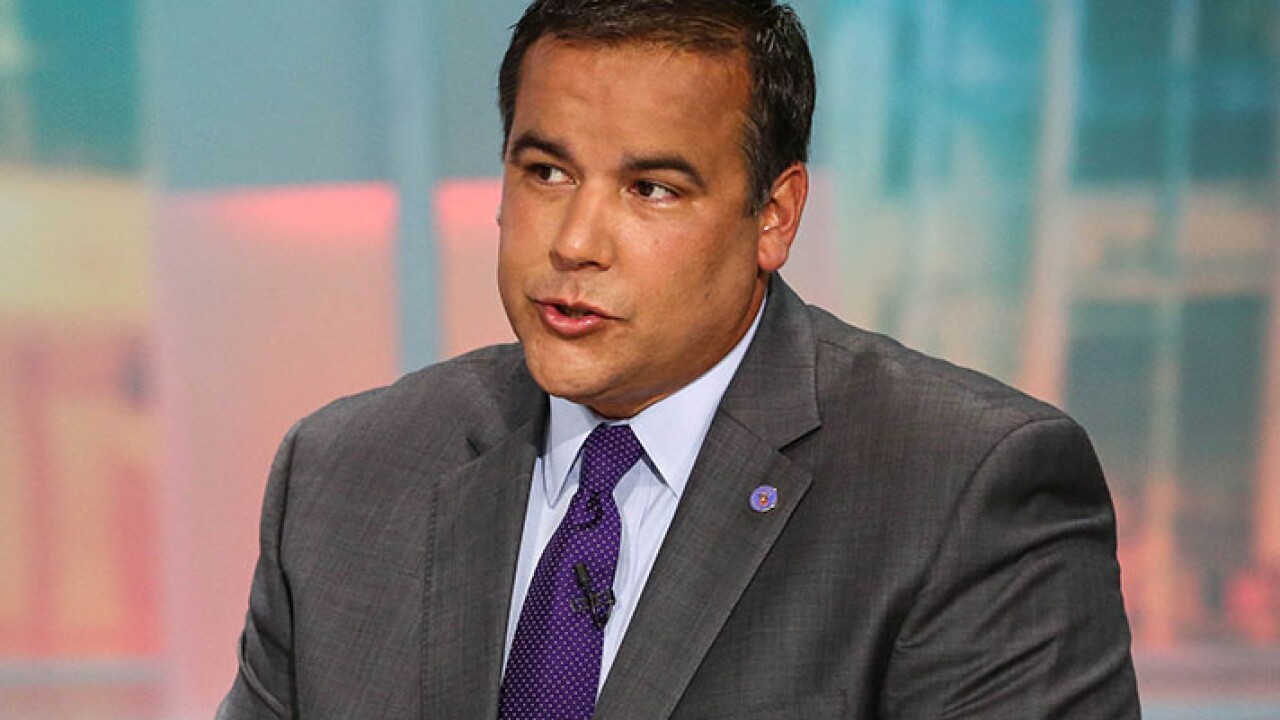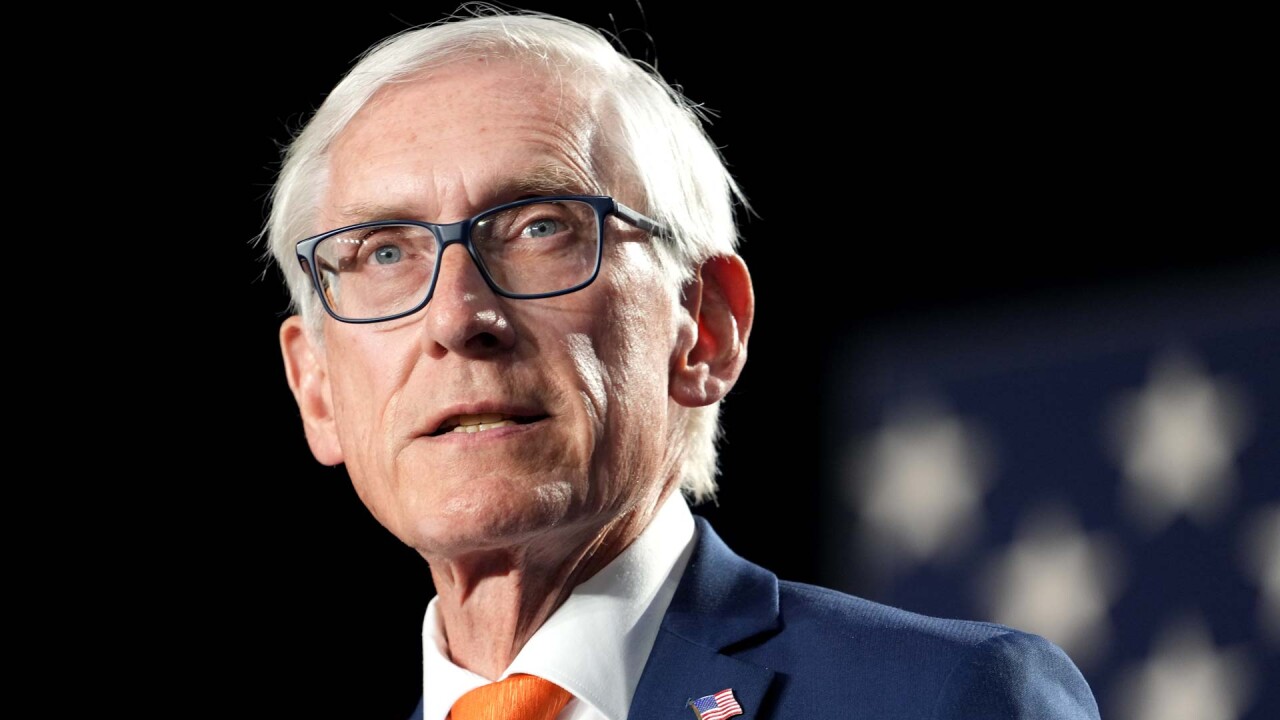
SAN FRANCISCO - Like Derek Jeter, who played his last game for the Yankees last month, California Treasurer Bill Lockyer is bringing a remarkably long career to an end.
Both had unusually consistent careers, said California Debt and Investment Advisory Commission Executive Director Mark Campbell, who recently made the comparison between the treasurer and the baseball player who played 20 seasons for one team.
"Lockyer has had 40 years plus of public service, with 25 years in the legislature including as president pro tempore — probably one of the most productive president pro tems in periods of our legislative history," Campbell said at a CDIAC luncheon recently. "This is a legacy of public service."
After four decades working for the state, Lockyer, 73, will
Over the course of his political career, which began in the State Assembly in 1973, when Ronald Reagan was governor, Lockyer has been an effective policymaker and an influential leader.
As treasurer, he helped guide California through some of its toughest fiscal times and into recovery, sold more bonds than any other California treasurer, and launched the "Buy California Bonds" campaign to encourage retail investment in the state's bonds.
During his tenure, Lockyer's state treasury has sold $50 billion of bonds. Since 2007, he has refinanced $12.7 billion of bonds to generate $1.8 billion in interest rate savings.
This year, Lockyer pioneered the state's
"He's certainly been a leader," said Matt Fabian, managing director at Municipal Market Advisors. "The municipal bond market has few strong national advocates and fewer leaders, and Mr. Lockyer, whether you agree with him or not, has filled that role."
On a national level, Lockyer led a protest against what he calls rating agencies' "unfair treatment" of governmental entities.
"Involvement in the sale of the bonds got me thinking about how dependent we are on rating agencies and the discrimination that was and is built into their analytics between the public and corporate debt," Lockyer said in an interview with The Bond Buyer.
His efforts lead to changes, with Moody's Investors Service and Fitch Ratings recalibrating their ratings to move toward a global scale, but there's still a lot of work to do before ratings fairly reflect risk, according to the treasurer.
Before he took on California's finances as treasurer, Lockyer served for eight years as attorney general, and before that for 25 years in the legislature, where he ascended to leadership and made his mark on state policy.
Examples of his legislative accomplishments include the merging of municipal and superior courts for efficiency, equal pay for female state workers, and the 500-mile San Francisco Bay Trail.
"I've loved the work I've been able to do in all three venues — it's almost like three lives," Lockyer said.
During his work in the first two venues — in the legislature and as attorney general — Lockyer found that fiscal issues were central, an observation that led him to seek the treasurer's office after term limits ended his run as attorney general.
"Whether it was trying to finance schools or conduct lawsuits against Enron for energy manipulation, fiscal matters kept coming up," Lockyer said. "That's what was motivating and sounded like it would be a challenging and interesting place to work."
Lockyer took office in 2007, during Gov. Arnold Schwarzenegger's administration, just before the financial downturn in 2008-09, which he said was one of the biggest challenges during his time as treasurer.
During the crisis, Lockyer's team managed the state's $60 billion-plus pooled money investment account, actually making a profit, unlike many financial assets that had gone down.
He also helped nonprofit hospitals refinance out of expensive bond debt and ensured health care providers received emergency loans form the state so they could continue to provide services.
"As State Treasurer, Bill has been a strong ally with the Legislature in protecting taxpayers' money during the Great Recession," said Senator Darrell Steinberg, D-Sacramento, who is termed out as President pro Tem this year. "His diligence in refinancing our bond debt saved taxpayers almost two billion dollars in interest, while his aggressive sale of voter-approved bonds has also kept interest rates low while creating hundreds of thousands of California jobs."
California's fiscal position has improved since the depths of the recession. Its credit ratings have bounced back to Aa3 from Moody's and A from both Fitch and Standard & Poor's.
Since the nadir of the downturn, interest rates California pays to issue bonds have declined substantially—from 4.67% on a 10-year general obligation bond in January 2009 to 2.24% in October 2014. The spread between a California GO bond and Municipal Market Data's triple-A benchmark bond has also come down substantially—from 114 basis points on a 10-year bond in 2009 to 25 basis points in 2014.
Instrumental to the state's improvement have been the reforms to the state budget process and disciplined budget balancing, as well as voter-approved temporary tax increases, Lockyer said.
Voters passed Proposition 25 in 2010 to lower the threshold for budgetary approval to simple majorities in the Legislature from two-thirds supermajorities, and passed Proposition 30 in 2012 to increase sales and income taxes. Lockyer said these changes helped balance the state budget and reinvest in education.
Lockyer made education one of his own priorities by expanding Californian's participation in the state's 529 college savings plan, called ScholarShare.
Assets in the plan have increased by 122% during his tenure—from $2.24 billion to $5 billion.
As treasurer, Lockyer has worked with two governors, officials at the Department of Finance, and many other state and local officials.
"There are countless friends that I've made along the way and I hope the many will stay friends and that part of my life won't change greatly," Lockyer said.
State Controller John Chiang, who has worked closely with the treasurer, particularly during the financial downturn, said he will miss working with Lockyer.
"He managed the state's treasury to protect taxpayers and preserve our ability to invest in California's future," said Chiang, who is running to succeed Lockyer as treasurer. "His long public service legacy has lasting impacts that benefits students, victims of crime, and all taxpayers."
Lockyer has endorsed fellow Democrat Chiang, saying he's "very confident" Chiang will be the next treasurer. Chiang is running against Republican Greg Conlon, a certified public accountant and longtime partner at Arthur Andersen LLP.
Lockyer advises his successor to continue taking advantage of market opportunities and to rely on a wide variety financial institutions for advice and financing—not just one or two.
The next treasurer will have to stay very engaged in the retirement and healthcare liability discussion, one of California's major challenges.
"In both public and private sector, trying to finance adequate retirements for future generations is hard," he said. "If we add retiree healthcare to that, it gets triply hard. I've been involved in that discussion and made various changes, but others are going to have to keep working on that for a lot of years to come."
An even larger financial challenge than retirement funding will be financing future infrastructure, because the state's population has outgrown current systems that were built 50 years ago, Lockyer said.
He estimates that over the next 10 to 15 years, the infrastructure investment need will be around $750 billion dollars.
"I don't see how the state can finance that with traditional tax-exempt issues," Lockyer said. "Perhaps they can get to $300 billion, but there's a big gap, so figuring out smart ways to bring private investment into satisfying infrastructure needs is critical."
He hopes that the state legislature will start to think of infrastructure investment in a more integrated, long-term way, as opposed to the current "ad hoc" way of making decisions each year.
Another issue that Lockyer says the treasurer should focus on is figuring out how to address the state's unhealthy reliance on personal income taxes. Credit rating agencies have said this leads to a higher level of economic and revenue volatility relative to other states.
"It's hard to change that, but in just a few decades it's gone from a third of the tax revenues to two thirds of tax revenues for the state," Lockyer said. "And that has an impact on individual and business locational and investment decisions, so we need to address that in the long term."
Lockyer has already started working as a lawyer at Brown Rudnick LLP and will work as a member of the firm's government law and strategies team in the Orange County Office.
"I will be a private sector lawyer, not involved in the public sector, so that's a big change," he said. "I'm looking forward to how it will be different."
Would he ever consider a public office position down the road?
"I always maintain the possibility thought and try to do what I can to keep the door open a little," Lockyer said. "So it's not a never, but right now, I'll see what it's like to be a lawyer again."





